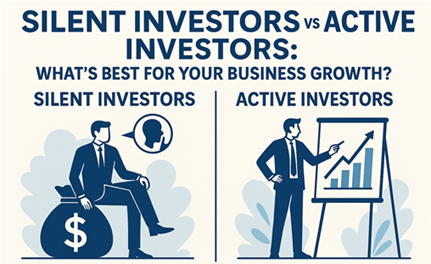In today’s fiercely competitive startup landscape, a winning idea alone isn’t enough. The ability to translate that idea into a compelling, investor-ready pitch can make the difference between a dream fulfilled and a venture forgotten. So, what exactly elevates a startup pitch from passable to irresistible? Here’s a detailed look into the psychology, structure, and strategy that turns pitch decks into paydays.
1. Crystal-Clear Problem-Solution Fit The best pitches open with a relatable, urgent problem. Investors are drawn to solutions that tackle widespread pain points. Clarity is key—avoid jargon and articulate the issue and your solution in simple, impactful terms. A good rule of thumb: if a high schooler can understand your problem and solution, you’re on the right track.
2. Market Opportunity That Excites Size matters in the startup world. Investors want assurance that the addressable market is not only large but also growing. Use credible data sources to back your claims. Break down the Total Addressable Market (TAM), Serviceable Available Market (SAM), and Serviceable Obtainable Market (SOM) to show a realistic yet ambitious outlook.
3. Scalable Business Model A solid business model shows how the startup plans to make money and grow. This involves clear revenue streams, pricing strategy, and operational scalability. Bonus points if you can show recurring revenue potential, such as subscriptions or SaaS models, which are highly attractive to investors.
4. Traction That Tells a Story Early traction is one of the strongest indicators of a startup’s potential. Highlight key metrics: user growth, revenue, engagement rates, partnerships, or pilot programs. Even a small but enthusiastic customer base can tip the scale if it shows genuine market validation.
5. Competitive Edge and Differentiation A pitch without a competitive landscape analysis is incomplete. Identify direct and indirect competitors, then clearly communicate what sets you apart—be it technology, user experience, pricing, or distribution strategy. Your unique value proposition (UVP) should be memorable and defensible.
6. Visionary Yet Grounded Team Investors invest in people as much as ideas. A strong founding team with complementary skills, industry experience, and a track record of execution builds trust. Highlight relevant achievements, and if there are gaps, show how you plan to fill them with advisors or hires.
7. Compelling Narrative and Storytelling Facts inform, but stories sell. An irresistible pitch connects emotionally with investors. Weave a narrative around why the founders started the company, who it helps, and the mission driving it forward. Authenticity, passion, and confidence can captivate even the most data-driven investor.
8. Financial Projections and Use of Funds A detailed yet realistic financial forecast signals strategic foresight. Lay out your revenue projections, customer acquisition costs, burn rate, and break-even timeline. Just as importantly, explain how the investment will be used—product development, team expansion, marketing, etc.
9. Exit Strategy Even early-stage investors want a roadmap to returns. Whether it’s an IPO, acquisition, or other liquidity events, show you’ve considered exit possibilities. Highlight comparable exits in your space to reinforce the potential upside.
10. Visual Appeal and Pitch Deck Design Your slide deck is your visual narrative. It should be clean, consistent, and professional. Use high-quality graphics, minimal text, and branded design elements to reinforce credibility. Remember, your pitch deck often precedes you—make it count.
11. Confidence Without Arrogance Investor meetings are a performance, but humility goes a long way. Show conviction in your vision while remaining open to feedback. Investors often back founders they believe they can work with over the long haul.
12. Q&A Preparedness Anticipate tough questions. From unit economics to competitive threats, being prepared signals maturity. A founder who can calmly and accurately respond to scrutiny earns trust and respect.
Conclusion
From pitch to payday, the journey is as much about presentation as it is about the product. By mastering the art and science of pitching—combining a compelling narrative, robust data, and authentic delivery—startup founders can transform investor interest into committed capital. Remember, a great pitch doesn’t just secure funding; it builds lasting investor relationships and sets the stage for long-term success.
Who we are: Funded.com is a platform that is A+ BBB accredited over 10+ years. Access our network of Angel Investors, Venture Capital or Lenders. Let us professionally write your Business Plan.











